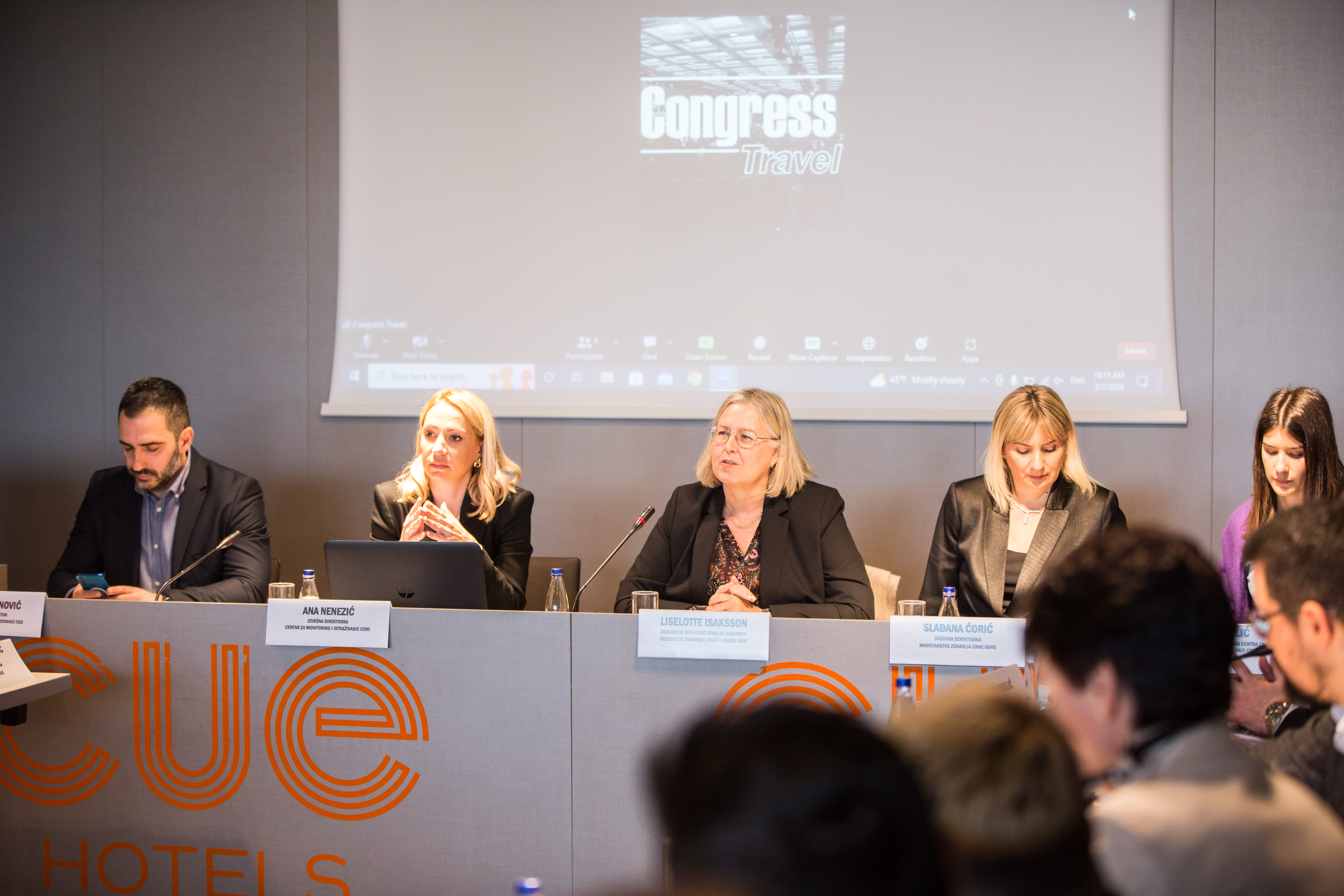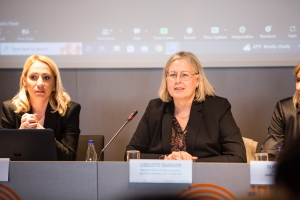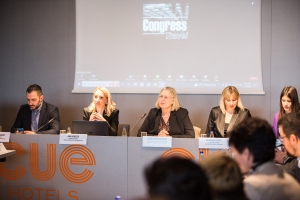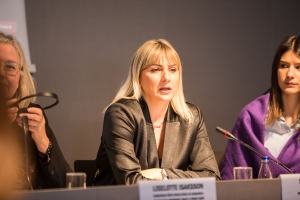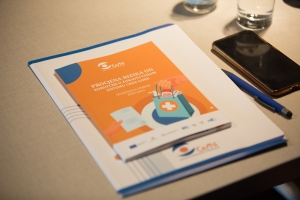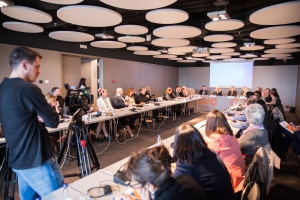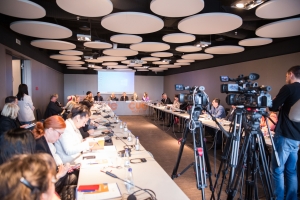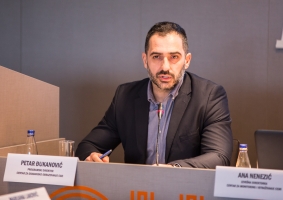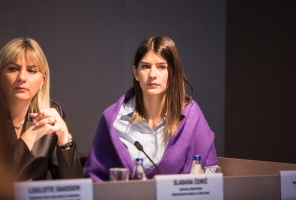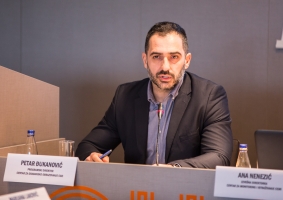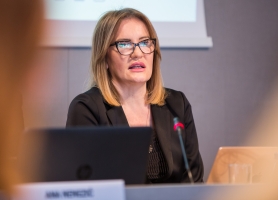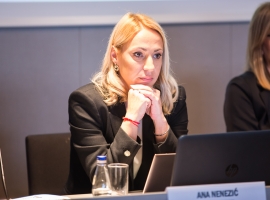The results in the fight against corruption in health care system are still very modest, despite numerous legal and by-law changes, and reform processes are not showing desired results, it was stated at the round table, ‘’For the recovery of the health care system of Montenegro’’, organized by the Center for Monitoring and Research (CeMI).
The CEO of CeMI, Ana Nenezic explained that the goal of CeMI is to contribute to a higher level of equality in the realization of the right to health care in Montenegro. ‘’In order to achieve this, taught by experiences from previous initiatives and projects, we primarily conducted a comprehensive analysis of the system for providing health care services and protection of patients’ rights in Montenegro, and then we proposed alternative models and politics for improving the work of health institutions and protecting the patients’ rights’’.
She pointed out that the results in the fight against corruption in the health care system of Montenegro still very modest, despite numerous legal and by-law changes: ‘’Reform processes that are carried out with the aim to improve health care, raising the quality of health care services, and suppression of informal payments and possible corruptive activities in the health care system of Montenegro, are not showing desired results. The results of the public opinion research, as well as the results of focus groups and direct communication with both patients and health care service providers confirm this’’.
Namely, Montenegrin public does not recognize the results of anti-corruption measures and 58% of citizens believe that the corruption is present or is largely present in the health care system, while only 9.1% believe that there is no corruption in that area. A comparative view of the data in relation to the same survey that CeMI conducted in 2016 and 2013 shows that there has been a significant increase in the proportion of people who think that corruption is present. It is particularly worrying that, judging by the public opinion, corruption is present to the greatest extent in the patient/doctor relationship. It is worrying that there is agreement on both sides that corruption is a problem, the only difference is in the perception of the extent of corruption present, and the manners in which this problem needs to be solved.
Furthermore, we believe that the strategic approach, i.e. the absence of key documents, contributed to this state of affairs. Namely, the Strategy for improving the quality of health care and patient safety for the period from 2019-2023 with an Action plan for the period from 2019-2020 was not, for the most part, realized, and seriousness of the approach is best reflected in the fact that action plans after 2020 have not been adopted. Also, the innovated strategy for the period after 2023 was not prepared and adopted.
The Ministry of Health has not prepared and adopted the planned Health Development Strategy of Montenegro for the period from 2022-2026 with an Action Plan for the period from 2022-2023, which according to the plan and program for Montenegro’s integration into the European Union, was planned for the first quarter of 2022.
She went on to say, that citizens, as an informal form of corruption, recognize referral to the same doctor, but to a private health care facility.
‘’In that case we have 22.5 percent who indicated that this was the main obstacle they faced and that they recognize as a form of informal corruption’’, Nenezic said.
As a reason for the existence of corruption, Nenezic announced that citizens state low earnings of health care workers, moral crisis of the society, bad legislation and complete absence of any penal policy.
Nenezic said that it was a positive fact that 46.2 percent believe that the quality of services has not changed in the last two years.
‘’Sixty-two percent claim that doctors address them in a polite way, while only eight percent do not share that opinion.’’ ‘’Also, the majority of the respondents thinks that doctors are competent and trained, 57.2 percent of them, and that they have confidence in them’’, Nenezic pointed out.
She mentioned, as a specifically significant area, which is not talked about enough, the patients’ right to privacy. ‘’A truly high percentage of our citizens, as many as 43,5% of them, believe that during medical examinations there is a violation of privacy of the patients because it happens that uninvited people enter the space where the doctor is performing the examination.’’ First of all, doctors, the Ministry of Health, the media, and the defenders of patients' rights should be providing information about the rights of patients.
She also suggested how to solve these problems ‘’For the successful fight against corruption, especially in the health care sector, strategic and multi-sectoral approach is a prerequisite. We propose preparing and adopting the Strategy and an Action Plan for prevention and fight against corruption in healthcare.’’
Liselotte Isaksson, Deputy Head of the Department for Cooperation, Delegation of the European Union in Montenegro, said that she hopes that the support from the EU will improve the resilience of the health system of Montenegro, as well as protection of citizens’ lives in the future.
‘’Now we are looking forward to seeing the strategy for development of the health system and to see how we can further support this sector’’, Isaksson said.
She said that corruption is harmful and in a more comprehensive way, and that it also destroys the confidence of citizens to improve the community they live in and to which they belong.
‘’Corruption is disappearing by itself, because people are starting to believe that it is not the only way to receive services which they need’’, Isaksson stated.
As she said, the last year report indicates that Montenegro achieved a certain level of readiness in the fight against corruption, as well as that the results in the prevention of corruption have somewhat improved, especially due to the positive trend in the work of the Anti-Corruption Agency.
The State secretary, Ministry of Health of Montenegro, Sladjana Coric, said that they have, with special attention, treated the study ‘’Assesment of risks of corruption in the health system of Montenegro - 2020-2022 Report’’, which will be of great use to decision makers.
‘’Zero tolerance on corruption was and will be the absolute position of the Ministry of Health and we have already, in that area, taken significant steps that will advance the fight against corruption’’, said Coric.
She encouraged all citizens to report any form of corruption that involved offering money.
‘’I guarantee that if such cases appeared they will be prioritized by the competent authorities’’, said Coric.
The Program director of the Center for Civic Education (CGO), Petar Djukanovic, said that the fight against corruption is top priority in the process of Montenegro’s integration into the EU.
As he said, the results of CeMI’s survey have unfortunately shown that almost 60% of citizens thinks that corruption in healthcare is present.
‘’The appearance of corruption in health care is much more complex because it affects to other segments of health care, it undermines the rule of law and harms the economic development and modernization of health care’’, said Zukanovic.
He warns that even in moments ‘’when you think that corruption can bring benefits we have to understand that it is not good for the functioning of the health system and that it is necessary to report it’’.
During the presentation of the findings of the study ‘’Assessment of the risk of corruption in the health system of Montenegro – 2020-2022 Report’’ the author of the study, Marijana Lakovic-Draskovic, said that Montenegro, for a couple of years, has not had a strategic framework for the fight against corruption and a method of reporting for concrete measures to combat this social scourge.
She noted that the publication contains a overview of international standards and documents, and a special focus is placed on the area of the health system, which is the most sensitive in the area of corruption.
Lakovic Draskovic said that the publication addresses the relationship between health sector and pharmaceutical industry, public procurement, waiting list criteria, supplementary work of health workers and improvement of their economic state.
She pointed out that the Montenegrin public does not recognize the results of anti-corruption measures, because the information ‘’that 86 percent of respondents stated that they or their family members gave money to receive a service is devastating’’.
When asked how she comments the fact that there are no reports of corruption, Lakovic Draskovic answered that citizens hesitate to report corruption, because their health depends on those doctors and nurses.
‘’We need more campaigns and education for the citizens to be encouraged to report corruption and be aware of that they will not have any complications if they do so’’, Lakovic Draskovic concluded.
